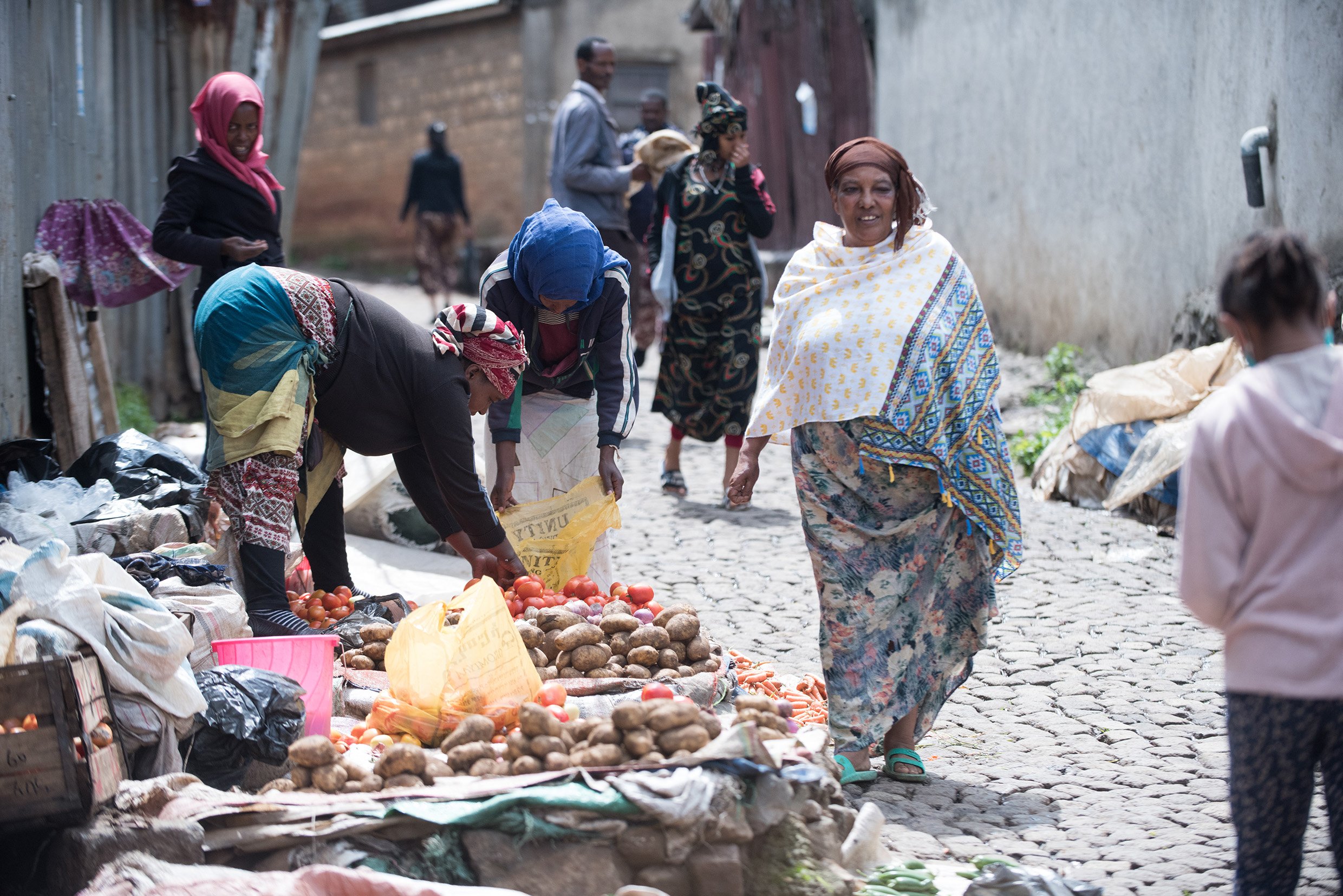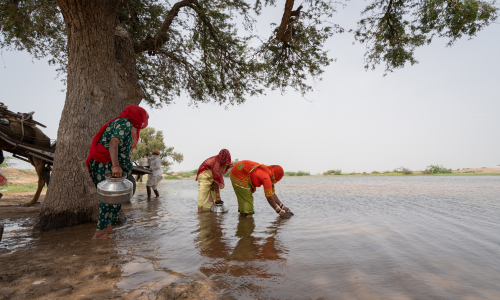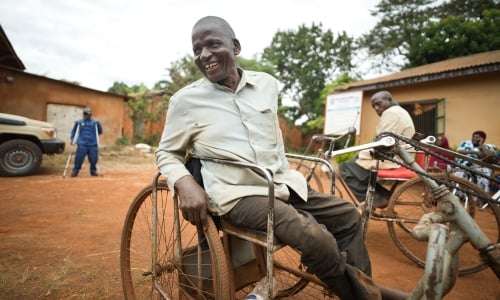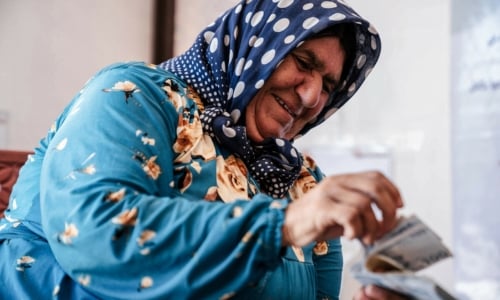
The author of "Older women: the hidden workforce", Age International Policy Advisor Kate Horstead, shares how the research was designed and implemented to centre and amplify older women's voices.
‘Today we have experienced something peculiar by you calling us to this place.’
Older woman, Thyolo, rural Malawi
Older women in low and middle-income countries have diverse and unique perspectives; crucial insights that are needed to help shape a path forward for gender equality.
But as they age, women, particularly in low and middle-income countries, find themselves excluded from data and research, from policy, and from programmes designed to progress women’s economic empowerment. Negative stereotypes and assumptions bar older women’s access to decent work, income and decision-making. Sometimes older women internalise these assumptions; it’s hard not to imagine you are useless when your contributions are made invisible and when you’re told you’re ‘too old’ to participate. All of these factors contribute to the silence around what it means to age as a woman in these contexts.
The absence of older women representing themselves in recent international forums shows how shamelessly their experiences are dismissed by others. Older women are also less likely to lead or speak out at community level. Systemic inequalities, and the lack of action from policymakers at all levels, validate these attitudes and compound the daily barriers older women face.
And yet older women are important; as people in their own right, and as grandmothers, spouses, mothers, sisters, and neighbours. Their relentless work and their unwavering focus on the wellbeing of others place older women as crucial stakeholders in international, national and local development. Older women’s realities are diverse, and many have a distinct view on how their environments have changed for them and others over time.
This is exactly why in this research we decided to focus on older women’s first-hand experiences and to invite them to put their voices at the centre.
Older women are, after all, the experts on their own lives, and in what they need to make them dignified and meaningful. It is time that we all sat up and listened, treating older women as human beings with plenty still to offer.

Older women’s experiences of work
While statistics provide useful measures to assess change, and can highlight the scale of an issue, qualitative data like our new research provides deeper insight into what statistics tell us, and how the situation plays out for older women. Our focus group discussions and in-depth interviews in Ethiopia and Malawi gave us invaluable insights into what exactly is stopping older women accessing their economic rights, how this makes them feel, and what ambitions they hold for themselves.
Working with our local partners
Local partners and researchers based in the countries we work in are often the best placed to give us the overview of their country context, and a closer perception of the lives of the people we support. Conscious of the usual dominance of NGOs in the Global North, in this project we tried to create a more open environment for all partners to contribute to the research tools and analysis.
The pre-data collection workshop we held in Addis Ababa with HelpAge Ethiopia, MANEPO and researchers included sessions on discussing awareness of gender and age-based power structures within our own societies, challenging our own prejudices, and ensuring all research participants were comfortable putting forward their view.
During our analysis, our partners also returned to the older women and their communities for a validation session to ensure the findings resonated with them – and how the pandemic had affected them.
Making space for older women
'I would like to pass the following messages for all government and community members about older women like me: You all have to give due attention to older people and women, since women are the pillars of the family and peacekeepers for their communities as well as for the country.'
Askale, Addis Ababa, Ethiopia
Older women’s initial surprise at being invited to the table speaks volumes. There have been huge efforts, particularly over the past few years, by NGOs and researchers to make more visible the unpaid and informal work contributions of women, particularly unpaid care work; however, analysis of these projects and the resulting advocacy have rarely included the specific contributions of older women, or the barriers they face.
Our ten-point action plan for stakeholders was also shaped by what older women and their communities told us, and by the expertise of our local partners in Ethiopia and Malawi, as well as colleagues based in the Asia Pacific region, to ensure its global relevance.
The discussions with older women instigated by our research were rich and insightful, and made clear the value of making space for their voices, for their benefit but also the benefit of their households and communities.
Older women: the hidden workforce
Globally, older women are contributing unrecognised yet critical support to their families, communities and economies through their paid and unpaid work. Our new report gives voice to older women’s experience of work and sets out recommendations for how to address this inequality.



